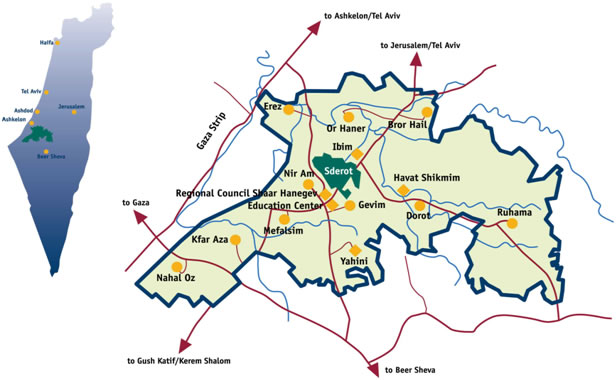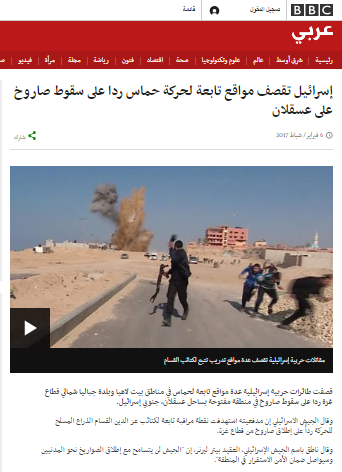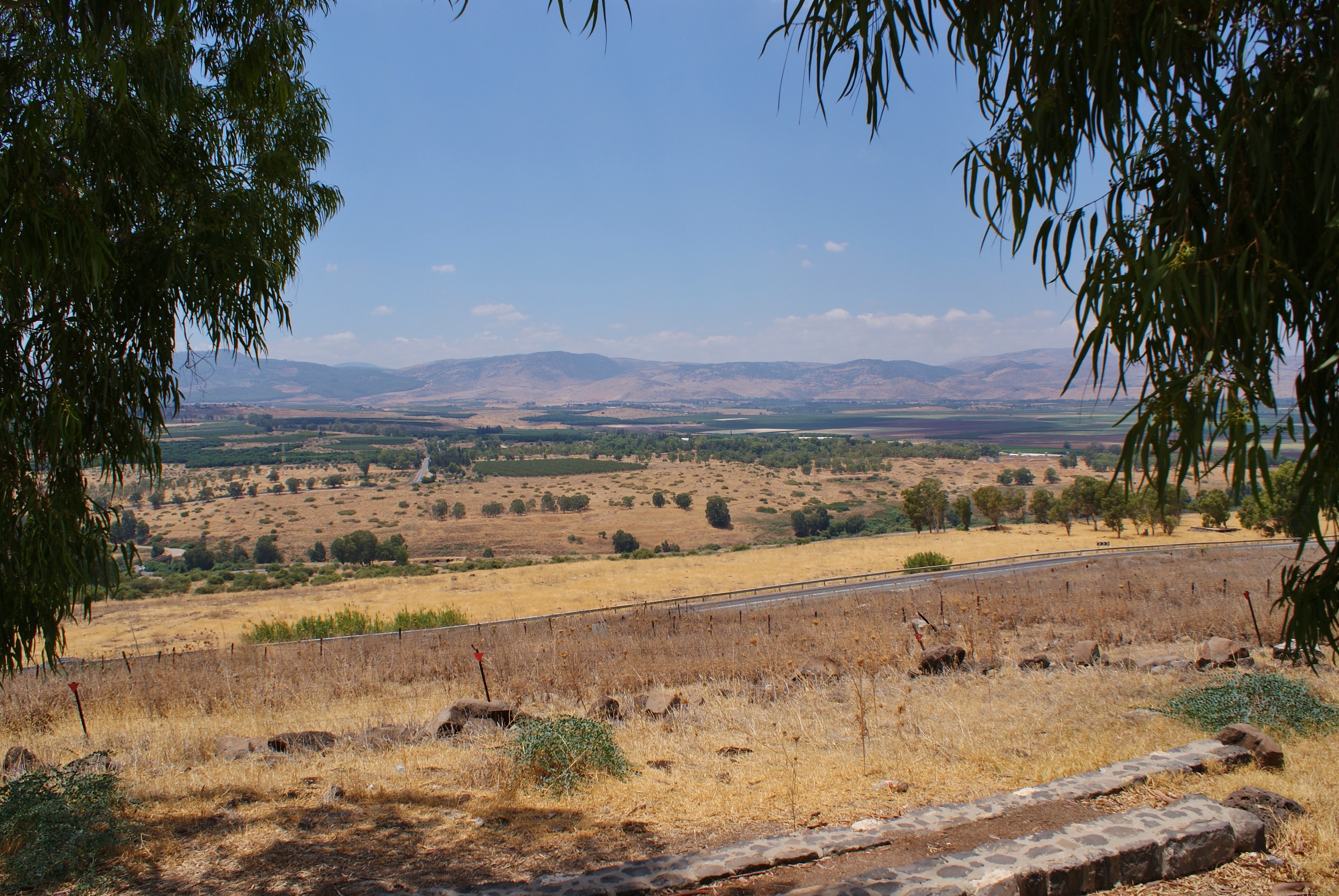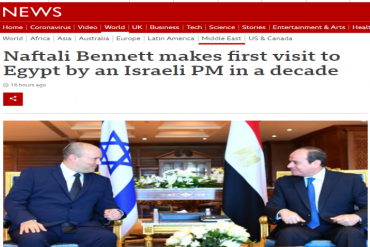Nearly nineteen years ago, in January 1997, Israel and the PLO signed an agreement called the “Protocol Concerning the Redeployment in Hebron“. That document came about under international tutelage like the rest of the Oslo Accords, which have been described as follows:
“This overall series of commitments and obligations constitutes a contractual framework of obligations between Israel and the Palestinians, signed as witnesses and guarantors by the King of Jordan, the Presidents of the U.S. and Egypt, the Foreign Ministers of the Russian Federation and Norway, the EU and endorsed by the UN.”
Under the terms of that agreement, Israel would administer the area defined as H-2 and the PA the area defined as H-1, with both Israelis and Palestinians continuing to live in the city of Hebron.
However, the BBC’s Yolande Knell has apparently not heard of that agreement willingly signed by the internationally recognised representatives of the Palestinian people.
After a hiatus of almost a week in its reporting on the current wave of terrorism in Israel, on October 30th the BBC News website’s Middle East page published a filmed report produced by Knell for BBC television news programmes under the title “Tensions rise in Hebron between Israelis and Palestinians“.
During that report, Knell told viewers that:
“Hebron is unique in the West Bank because it’s divided. Part is under full Palestinian control and the other part is under full Israeli control, although most of the people living there are Palestinians.”
So far, so good – except that Knell makes no effort to explain to viewers that the arrangement she portrays came about because the Palestinians agreed to it. She then takes viewers through a checkpoint.
“As you can see, it’s guarded by Israeli soldiers. […] The soldiers are here right in the heart of the Old City because just along here there are families of Jewish settlers.”
No attempt is made to inform audiences of the historic background to Jewish settlement in Hebron. After a brief interview with someone described on screen as a “settler leader”, Knell tells BBC audiences:
“The presence of Jewish settlers here is seen as illegal under international law, but Israel disagrees.”
So too, apparently, does the PLO because it agreed to their “presence” in Hebron back in 1997.
Knell’s insertion of the BBC’s standard mantra on ‘international law’ may not be at all surprising, but it does raise an interesting question. Her application of that standard insert to a place where Israelis live according to the terms of an agreement signed between Israel and the Palestinians suggests that either the BBC is either woefully under-informed or – in similar fashion to its bizarre approach to Israel’s capital city – considers itself qualified to over-rule and ignore existing documents and agreements which do not fit in with its political narrative.
It would of course be very helpful were the BBC to issue a clarification on that topic.
Additional noteworthy features in this report by Yolande Knell include the provision of backwind for the Palestinian propaganda seen in recent weeks which attempts to portray terrorists as ‘innocent victims’. [all emphasis added]
“As violence has flared this month there have been a lot of stabbing attacks and alleged attacks on Israelis in and around Hebron. A lot of young Palestinians have been shot and killed as a result.”
An on-screen caption preceding an interview with the mother of a terrorist who attacked a soldier with a knife on October 26th read:
“Saad al Atrash is said to have tried to stab a soldier. He was shot dead.”
Also notable is the inclusion of an interview with Issa Amro in this report and – not for the first time – the inadequate description of that relatively frequent BBC interviewee as a “Palestinian activist”. With Amro’s employment by an anti-Israel organization concealed, viewers would of course have been unable to put the claims he made into their appropriate context.
Knell closed this report by telling BBC audiences that the story of the current wave of terrorism in Hebron is all about ‘narratives’.
“Basically on the ground here you get two starkly contrasting narratives. Speaking to the Israelis over there, they see all of this as hateful, senseless violence. But Palestinians here say that their anger stems from the political situation and their feelings of despair. This is really a nationalistic struggle but increasingly, it’s also taking on a religious dimension.”
Of course this wave of terrorism has been fueled by religiously themed incitement from the start, but the BBC continues to downplay that aspect of it by both failing to report that incitement (and Hamas’ strength in Hebron) and focusing instead on a narrative with which Western audiences – and journalists – are much more at ease.




